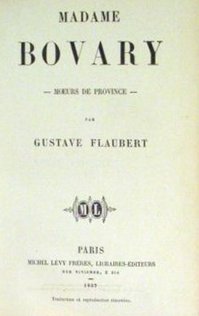For all its drawbacks for writers, the Internet has its pluses, too. Easier research, for one. And here’s another example: Two new websites in France are putting on display, for everyone to see, just how difficult writing novels (in particular) really is and how it was done by a master. Prospect Magazine has the story, and here’s the lede:
Flaubert, said Henry James, was “the novelist’s novelist.” And perhaps because he wanted to prove to his family of sceptical doctors that writing was hard work, or perhaps because he was incapable of throwing anything away, or maybe even because he was so in awe of the mystical powers of art, Gustave Flaubert (1821-1880) kept all his manuscript drafts.
A unique internet literary collaboration that began in Rouen, Flaubert’s Normandy birthplace, now lays bare the innermost secrets of his anguished creative process. The 4,561 pages he frantically wrote and rewrote to become his 400-or-so-page masterpiece, Madame Bovary, have been transcribed by 130 enthusiasts from 13 countries and put online.
 Flaubert’s manuscripts have been digitized, posted alongside the transcriptions at two websites: www.bovary.fr and flaubert.univ-rouen.fr/. It’s in French, of course, but anyone can gawk at the revisions. The Prospect article reveals plenty, too, such as:
Flaubert’s manuscripts have been digitized, posted alongside the transcriptions at two websites: www.bovary.fr and flaubert.univ-rouen.fr/. It’s in French, of course, but anyone can gawk at the revisions. The Prospect article reveals plenty, too, such as:
-
Flaubert wrote 52 versions of Madame Bovary’s most famous scene, wherein Emma sneaks out of her house at dawn and runs to her lover;
-
He often produced 20 versions of the same page;
-
He excised metaphors (“they attack me like fleas”, he said);
-
He thought as he wrote, rather than plan what he would say first.
There’s much more in the article; here’s the link.
